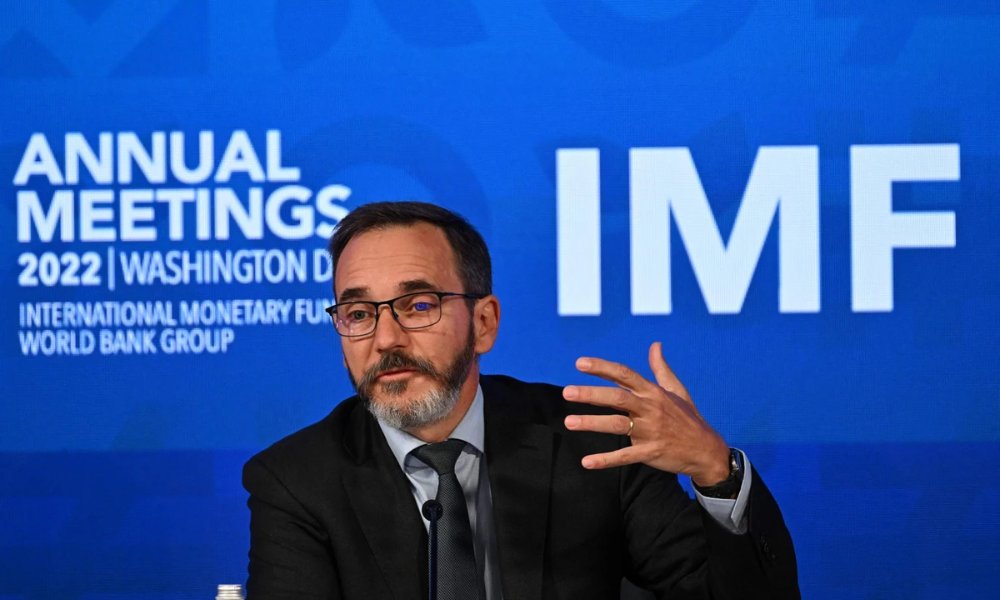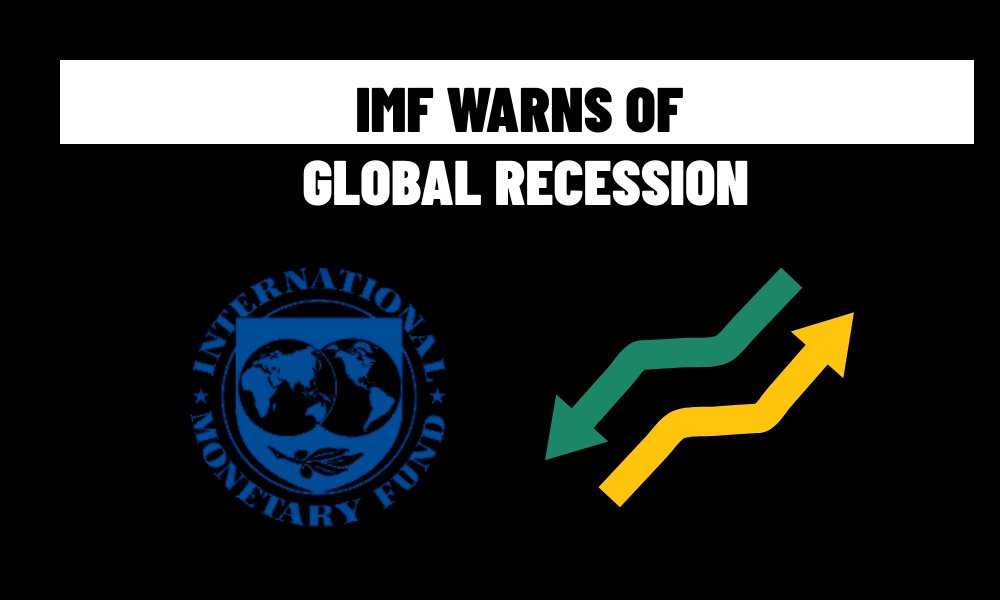The International Monetary Fund (IMF) has issued a stark warning about a potential global economic recession, driven by escalating trade tensions and cryptocurrency market volatility. This article explores the IMF’s latest concerns and their implications for investors and policymakers.
IMF Signals Economic Storm on the Horizon
The International Monetary Fund (IMF) has issued a sobering warning, slashing its 2025 global growth forecast to 2.8%, down 0.5% from its January outlook. This marks the weakest projected growth since the post-pandemic recovery, with the IMF citing unprecedented U.S. tariffs and cryptocurrency market volatility as key catalysts. The specter of a global recession looms large, threatening to disrupt both traditional and digital asset markets. As trade policies tighten and crypto prices waver, investors and policymakers face a critical juncture.

The IMF’s revised projections paint a grim picture: U.S. GDP growth is now expected to slow to 1.8% in 2025, dragged down by tariff-induced economic friction. Meanwhile, smaller economies dependent on global trade face even steeper challenges. The Fund’s warning underscores the interconnected nature of today’s economic ecosystem, where policy missteps in one region can ripple worldwide.
Trade Tensions: A Catalyst for Economic Strain
At the heart of the IMF’s concerns are U.S. tariffs, described as the highest in a century. These measures, aimed at protecting domestic industries, risk igniting a global trade war. By disrupting supply chains and inflating costs, tariffs are squeezing growth in major economies like the U.S., China, and the European Union. The IMF estimates that a full-blown trade conflict could shave 0.8% off global GDP by 2026, pushing vulnerable economies into recession.
The impact is already visible. U.S. stock indices, including the Dow Jones, recently shed over 1,000 points in a single session as recession fears mounted. Export-driven nations, particularly in Asia and Africa, are bracing for reduced demand, with countries like Vietnam and Thailand facing potential export declines of up to 15%. The IMF urges policymakers to prioritize flexible monetary policies and coordinated trade strategies to mitigate these risks, but political gridlock in key regions complicates the path forward.
Cryptocurrency Markets: Volatility Amid Uncertainty
The cryptocurrency market, often a barometer of macroeconomic sentiment, is reeling from the same pressures. Bitcoin, the leading digital asset, has struggled to maintain its $74,000 support level, with analysts warning of a potential drop to $68,000 if selling pressure persists. Ethereum, meanwhile, hovers precariously between $1,250 and $1,300, with bearish sentiment dominating short-term outlooks. The IMF notes that crypto’s sensitivity to global economic signals amplifies its volatility, posing risks for retail and institutional investors alike.

Yet, there are glimmers of resilience. On-chain data reveals significant Bitcoin withdrawals from centralized exchanges, totaling over $220 million in a single week. This suggests that long-term holders, or “whales,” are accumulating assets in anticipation of a rebound. Such behavior contrasts with retail panic-selling, highlighting a split in market sentiment. For savvy investors, these dynamics present opportunities to buy the dip, provided they can weather short-term fluctuations.
Navigating the Risks: Insights for Investors
For investors, the IMF’s warning demands a strategic reassessment. Cryptocurrency markets, while volatile, remain a hedge against traditional market downturns for some. However, the current climate calls for caution. Monitoring key technical levels—such as Bitcoin’s $74,000 support or Ethereum’s $1,250 floor—can guide entry and exit points. Diversifying across asset classes, including stablecoins or gold, may also reduce exposure to crypto’s wild swings.
Traditional markets are no less precarious. With U.S. equities under pressure and global trade flows disrupted, defensive stocks in sectors like utilities or consumer staples may offer stability. Investors should also keep an eye on central bank actions, as the Federal Reserve and European Central Bank signal potential rate adjustments to counter slowing growth.
Policymakers Face a Daunting Challenge
The IMF’s call for action places immense pressure on policymakers. Smaller economies, heavily reliant on exports, must diversify trade partners and bolster domestic demand to cushion the tariff blow. Larger economies, meanwhile, need to balance protectionist impulses with global cooperation. The Fund advocates gradual debt reduction and targeted fiscal stimulus to stabilize markets, but implementing these measures amid political polarization is no small feat.
Cryptocurrency regulation also looms large. The IMF has long expressed concerns about crypto’s role in financial instability, and recent volatility may accelerate calls for stricter oversight. Investors should stay attuned to regulatory developments, as new policies could reshape market dynamics.
Looking Forward: A Path Through Uncertainty
The IMF’s warning serves as a wake-up call for markets worldwide. Trade tensions and cryptocurrency volatility are not isolated issues but symptoms of a broader economic malaise. For investors, staying informed is paramount. Platforms like Reuters for macroeconomic updates or CoinMarketCap for crypto trends can provide real-time insights. Engaging with communities on X may also offer valuable perspectives from traders and analysts.
While the road ahead is fraught with risks, it also holds opportunities. The cryptocurrency market’s resilience, coupled with strategic policymaking, could pave the way for recovery. By blending caution with opportunism, investors and policymakers can navigate this turbulent period and emerge stronger.
